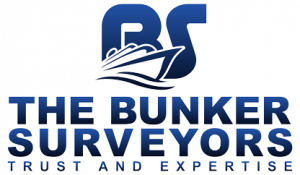Reported Corruption Incidents down 90% in Argentina
According to the latest data from the Maritime Anti-Corruption Network’s (MACN) Anonymous Incident Reporting System, corruption incidents in Argentina have decreased by more than 90% in. This drop followed the development of a new regulatory framework with the National Service of Health and Agri-Food Quality (Senasa), the development of a new IT system for processing and registering hold/tank inspections, and significant government support from the highest of levels. These developments are part of the collective action project MACN initiated in support of the reforms initiated by Senasa, other local stakeholders and the broader shipping community in Argentina back in 2014.
MACN Programme Director, Cecilia Müller-Torbrand highlighted this as one of the organization’s real success stories “In 2014, when we started this project, shipping companies operating in Argentina faced challenges in connection with the inspection of holds and tanks inspection practices. Data from MACN Anonymous Incident Reporting System highlighted a systemic issue with demands for payment for unclean grain holds, including cases of extortion.”
Using this data as a starting point, MACN and local partner Governance Latam, conducted a fact-finding mission to fully understand the nature of the problem before building a strong coalition of local and global stakeholders.
Governance Latam Partner, Fernando Basch noted the vital role the National Service of Health and Agri-Food Quality (Senasa) played “The rapid fall in corruption incidents is a direct consequence of the leadership and regulatory changes Senasa was able to put in place. The 2017 redrafting, and clarification, of regulations for approval of a vessel’s holds or tanks for the loading of agricultural products greatly improved operating practices for the vessel inspection process. This also allowed us to develop comprehensive training for public and private stakeholders to further reinforce the required change in behavior.”
Cecilia Müller-Torbrand commented “The Argentine authorities demonstrated the importance of the authorities’ role. Following industry feedback, they put in place key changes to processes, systems and standards, which resulted in clarity and transparency in the inspection of warehouses and vessel tanks and holds.”
John Sypnowich, Chair of the Maritime Anti-Corruption Network noted the shipping community was providing a best-practice template to fight corruption. “MACN’s Argentina project should be seen by the international community as an exemplary case of public-private collective action against corruption. The results we have achieved, in a relatively short time-frame, set the benchmark for future collective actions.”
The new regulatory framework entered into force on November 1, 2017 for a one-year pilot period, and given the success and impact achieved to date, Senasa is now taking steps to maintain the new system. MACN’s support and incident data have been key drivers behind this decision and there is industry recognition of the ongoing need to confront corruption risks to the industry, with the same collective action approach used with Senasa.
